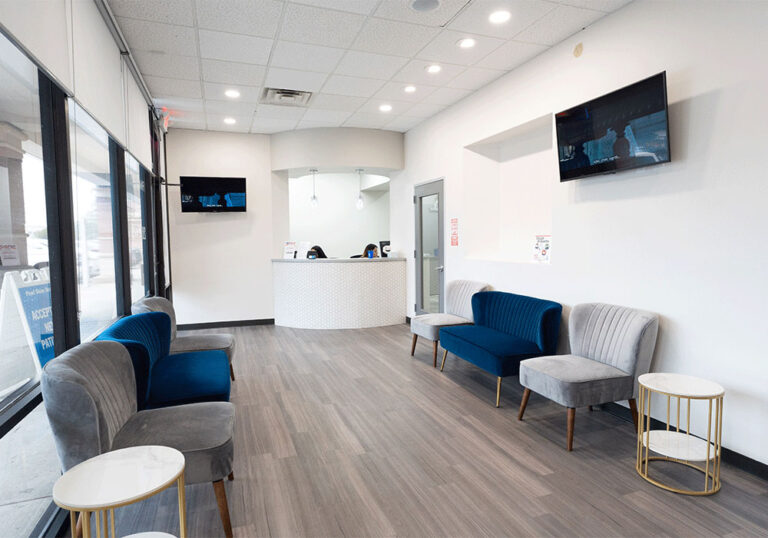Dental Veneers
Dental veneers are a simple solution for people looking to improve the appearance of their smile. They are a popular cosmetic treatment because of their customizable appearance, giving you the smile of your dreams.
Treat Yourself to a Beautiful New Smile
If you have crowding issues, chipped teeth, worn down teeth, or even areas of staining, dental veneers could be a great solution for you! Dental veneers are customizable, meaning that the shade and shape of the veneers can be adjusted to give you your dream smile. Veneers are durable and, with proper care, can last many years before needing replacement or repairs.
-
How do dental veneers work?
Dental veneers are incredibly thin shells that are applied on the front surfaces of a person’s teeth. Depending on the style of veneers, the teeth may be prepped first by removing a small amount of enamel. Once installed, the veneers can cover noticeable flaws to make adjustments to alignment. They can also adjust the thickness of them to improve spacing.
They are very easy to apply, requiring preparation of the teeth and then securing them in place with a strong dental adhesive.
-
What types of dental veneers are available?
The two main types of dental veneers are porcelain veneers and composite veneers. Both are good options to help you improve your smile.
Composite veneers are manufactured in-office, using tooth-colored resin, and applied directly to the teeth. They are typically less expensive and quicker to apply than porcelain veneers, and they work well to cover up many aesthetic problems.
Porcelain veneers are custom-made out of porcelain to fit your teeth. These are typically made in a laboratory and sent to our office. We will apply them and ensure they fit your teeth as they should. Porcelain veneers generally last longer because of the stronger material, provide a more natural look, and can fix larger cosmetic issues such as very dark stained teeth or teeth positioned incorrectly.
-
How long do dental veneers last?
Our veneers are made of a high-quality material that is designed to last. On average, most veneers last 10-15 years. However, with exceptional dental care, your dental veneers can last more than 20 years. If your dental veneers need to be repaired or replaced, please contact our office right away so we can get you smiling again.
More Questions?
If you have more questions about dental veneers, please contact our office, and we will be happy to discuss further.

